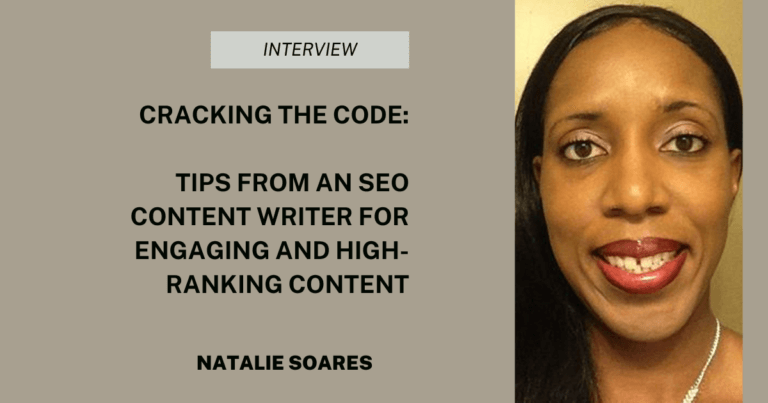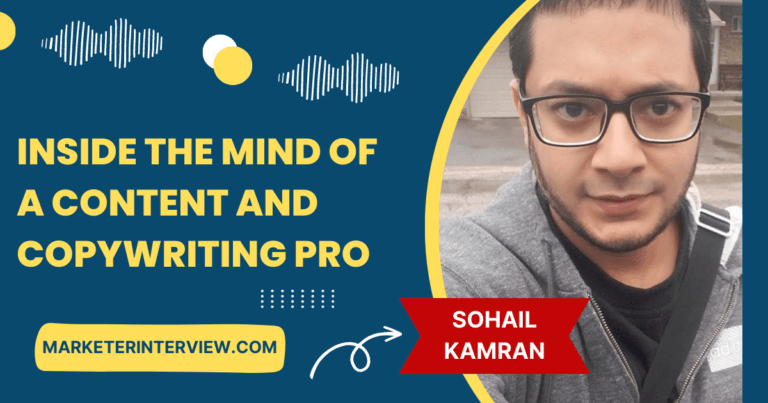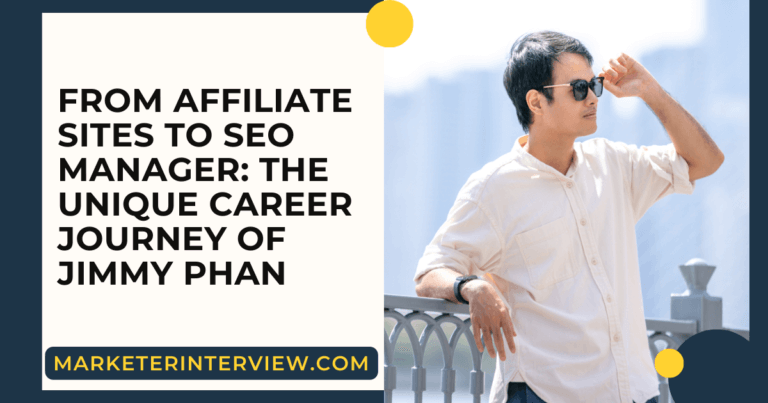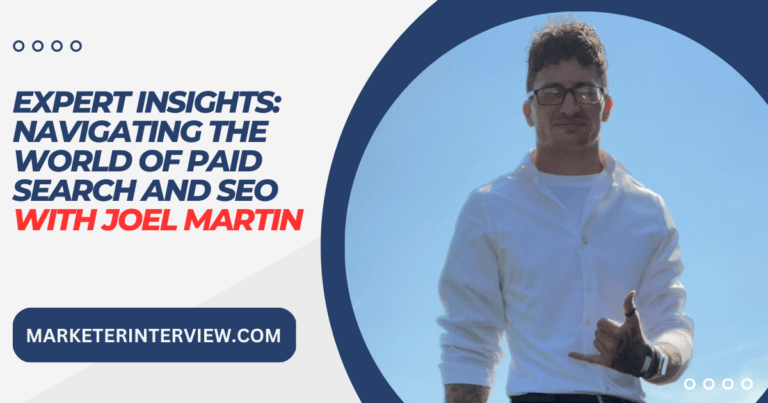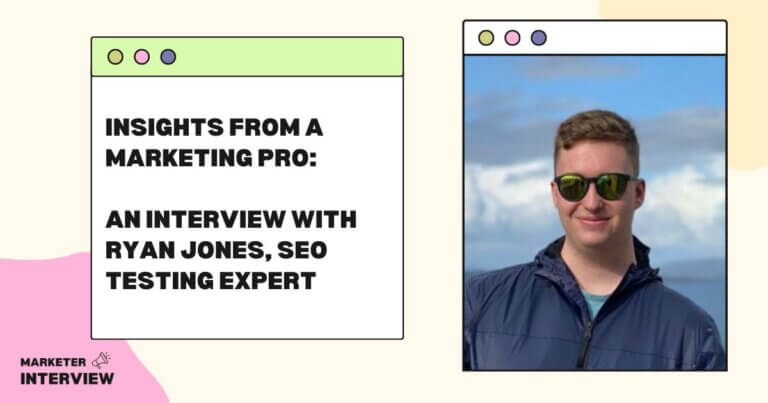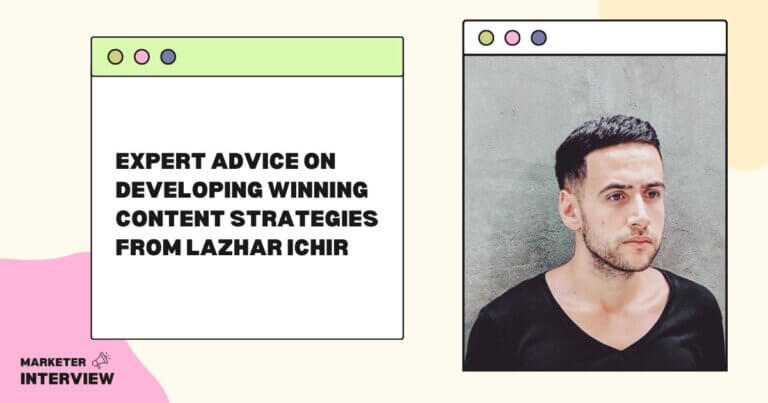Mastering SEO and Content Marketing: An Interview with Dan White
Welcome to Marketer Interview, where we delve deep into the minds of some of the most brilliant marketing minds in the industry.
Today, we enjoyed chatting with Dan White, a seasoned independent SEO consultant with over 13 years of experience in the field. Dan is known for his expertise in combining Technical SEO and Content Marketing to drive tangible results. He’s a one-person machine, ensuring a personalized and comprehensive approach for his clients.
If you want to learn more about Dan’s journey, strategies, and insights, you’re in the right place. Let’s get started!
Contents
- 1 Can you share how you initially got into the marketing world and what drew you to SEO?
- 2 Your LinkedIn profile mentions 13 years of experience. Could you highlight some key milestones and lessons that have shaped your career in marketing?
- 3 As an Independent SEO Consultant, you have a unique approach to your work. Can you explain how you typically collaborate with clients and what differentiates you from larger agencies?
- 4 What role does content marketing play in your SEO strategy? Please give us some insights into how you merge these two aspects to achieve your results.
- 5 In the ever-evolving world of SEO, what are some of the most significant changes or trends you’ve witnessed, and how have you adapted your strategies?
- 6 You’ve worked with a diverse range of brands across different industries. Could you share a standout success story or a challenging project that taught you valuable lessons?
- 7 The Digital Marketing Union (DMU) is a part of your professional journey. How has your involvement with the DMU influenced your marketing approach, and how can it benefit other marketers?
- 8 In the realm of SEO and content marketing, are there any specific tools or software that you find indispensable for your work? How do these tools enhance your efficiency?
- 9 Could you elaborate on the critical metrics and KPIs you track for your SEO campaigns and how you measure the impact of your efforts on clients’ websites?
- 10 Freelancing can be an attractive career path for many. What advice do you have for aspiring freelance marketers who want to excel in SEO and content marketing?
- 11 Looking ahead, what are the most significant challenges and opportunities in the SEO and content marketing landscape in the next few years?
I studied Archaeology and History at university, so I fell into marketing by complete accident. After graduation, I struggled to land a role, but a research job for a recruitment company came up. Only it was a marketing job in disguise. I enjoyed the work and didn’t see any reason to stop.
At my second job, I was sent to do some SEO training for the business, and I realized how weirdly excellent SEO was. How can you change code and content? Assuming you do the right thing, people worldwide can find your website.
Your LinkedIn profile mentions 13 years of experience. Could you highlight some key milestones and lessons that have shaped your career in marketing?
The 13 years comprises client-side jobs, agency jobs, and, for the last 6 years, doing my own thing. Highlights include working with the National Trust (a dream client for a history & archaeology graduate) and getting invited out to Utah for a project.
Business wise, the most significant milestone for self-employment was the first time I could pay myself more than my former full-time job.
Lessons:
- Different people have different goals. Pick one that honestly works for you
- Progress (however you define it) is never linear
- For winning work, who you know is often more important than what you know
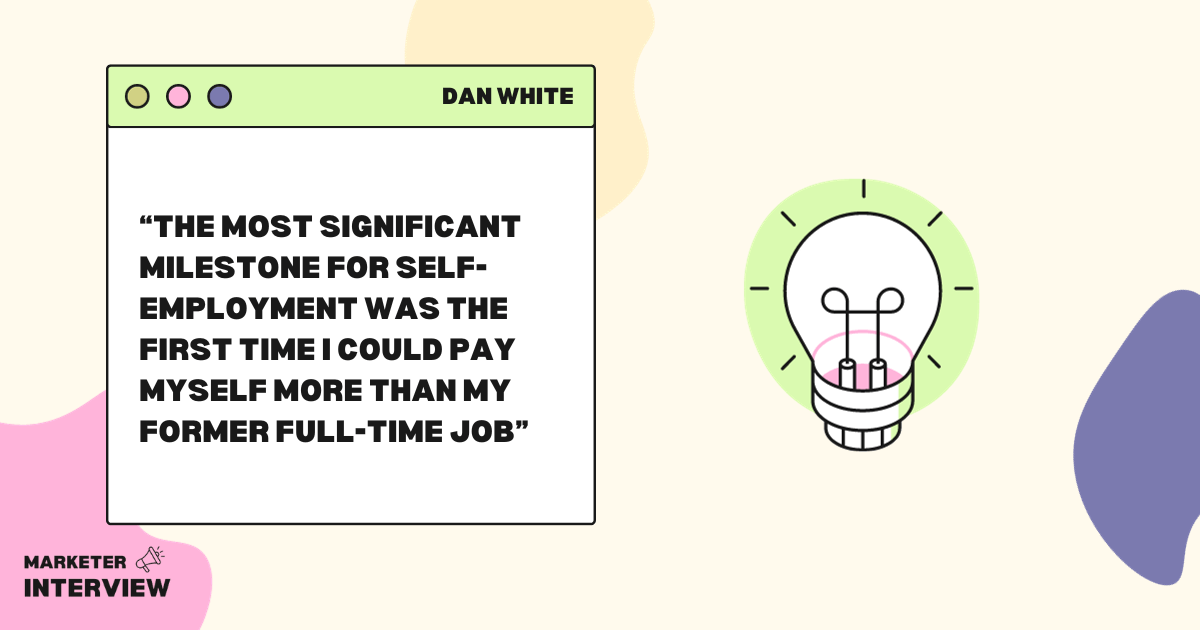
As an Independent SEO Consultant, you have a unique approach to your work. Can you explain how you typically collaborate with clients and what differentiates you from larger agencies?
Typically, I work with smaller marketing teams with both a resource gap and a skills gap with SEO.
I’m there for the long term to act as something between a business consultant to understand the ROI of SEO, a networker – to recommend other specialists they may need, and a tactician – to roll up my sleeves and get the work done to help the client on their way.
Compared to an agency, this means the client relationship starts and ends with me. Their account isn’t serviced by a junior or secretly outsourced to complete the work. There are no lengthy contracts tying clients into work they don’t need.
Plus, because I only work with a few clients at a time, I can work with them holistically rather than forcing them into a set agency package that benefits the agency more than it does the client.
What role does content marketing play in your SEO strategy? Please give us some insights into how you merge these two aspects to achieve your results.
Generally, content marketing always becomes a thing with my client’s work, but only after we’ve sorted out the onsite and technical issues. There’s no point building something on shaky foundations.
I work with the client to assess what we could create (based on resources, budgets, internal expertise, knowledge, etc.) and set about recommending a content marketing plan that would work for them. We then split the content into 3 parts that would:
- Work to bring in additional traffic through long-tailed keyword topics
- Act as a foundation to underpin the content quality of the website as a whole
- Help attract links/additional publicity
This means we can look at the website holistically rather than just focusing on one area.
In the ever-evolving world of SEO, what are some of the most significant changes or trends you’ve witnessed, and how have you adapted your strategies?
Aside from AI (look at the final question), the biggest thing is the complexity that’s sprung up with SEO in the last decade.
SEO has gone from this relatively siloed: changing the meta tags, adding some links, and the kind of activity one person may have worked on in the corner of the office to this all-encompassing marketing effort. This is a good thing, and it’s needed, but many clients’ mindsets about what SEO is or what SEO should be are still rooted in that old-school way of thinking.
Now, you are sitting at the center of all client website decisions. What’s going on with their analytics? How can the PR agency help us acquire more links? Who is an expert in the business that can author blog posts?
Far from being at the fringes of the business, SEO should sit at the center so it can pull information from every department. That’s easier said than done, and trying to get access to these other parts of the business, then buy-in, and then active involvement from teams makes SEO in more recent years so much more complicated.
I work with a luxury interior design studio, and we worked on this small but beautifully formed content marketing project around vegan interior design. 5 short articles, all interlinked. In only a few months, we ranked in Position 1, and some 3 years later, we’re still there.
But the best bit has been the long-term consequences. Because of the post ranking, journalists have then found us and been able to contact the client for comments on vegan design, bringing even more publicity and links that have powered the site for its other rankings.
The Digital Marketing Union (DMU) is a part of your professional journey. How has your involvement with the DMU influenced your marketing approach, and how can it benefit other marketers?
It’s made me better at working with clients – simply because I get first-hand insights into how other marketers have done something. How they’ve laid out a report, designed a proposal, or worded an email to a demanding client – have all been so helpful for refining how I operate my business.
For other marketers, the primary reason people join and stick with the DMU is that sense of connection. Self-employment can be isolating, both physically and psychologically. So, having people you can ask questions to, share rants, celebrate wins, and generally know that wherever you are in the world, there’s a team of online friends who have your back – that makes a big difference to people for them to run their businesses with confidence.
In the realm of SEO and content marketing, are there any specific tools or software that you find indispensable for your work? How do these tools enhance your efficiency?
- Screaming Frog – Excellent for crawling sites and finding issues buried in the data
- SE Ranking – For rank tracking. Easy to understand UX, and it now exports to Google Data Studio.
- AlsoAsked – For content marketing campaigns – it is excellent for ideation – and for sharing with clients easy visuals for related topics we could write about
- Special shout out to Percentage Calculator, too – it makes reporting and my life much easier.
Could you elaborate on the critical metrics and KPIs you track for your SEO campaigns and how you measure the impact of your efforts on clients’ websites?
All the metrics I work with a client on are business metrics, so that’s revenue and inquiries.
While I will privately look at rankings, impressions, and clicks as early indications that what I’m doing is working, the clients care about success on their terms, so I talk to them in their language.
Freelancing can be an attractive career path for many. What advice do you have for aspiring freelance marketers who want to excel in SEO and content marketing?
Three things – firstly, becoming a freelance SEO is a lot more challenging than you think it is. That’s not because the actual mechanics of SEO or content marketing are in some way harder than being on the agency or client side.
Instead, as someone running their own business, you must know how to do everything else. Everything means finding suppliers, doing your accounts, buying insurance, and, of course, marketing yourself. However, that could apply to anyone self-employed, so…
Second, it’s learning the unique combination of business skills that successful SEO and content consultants need. It’s something that’s lacking in many early-stage freelancers, which is essential if you want to win and retain new business.
That means the ability to explain SEO in a way clients can understand, which means keeping clients happy even if results are slow. It means getting buy-in for projects and managing internal teams to deliver work. You need to learn it. Tom Critchlow’s SEO MBA is an excellent resource for this.
Thirdly, find a community. Self-employment is sometimes lonely, so find a group of like-minded people you can hang out with – online or, ideally, in real life. You can ask embarrassing questions, share client horror stories, and generally feel more secure that there are other people out there in the same boat as you.
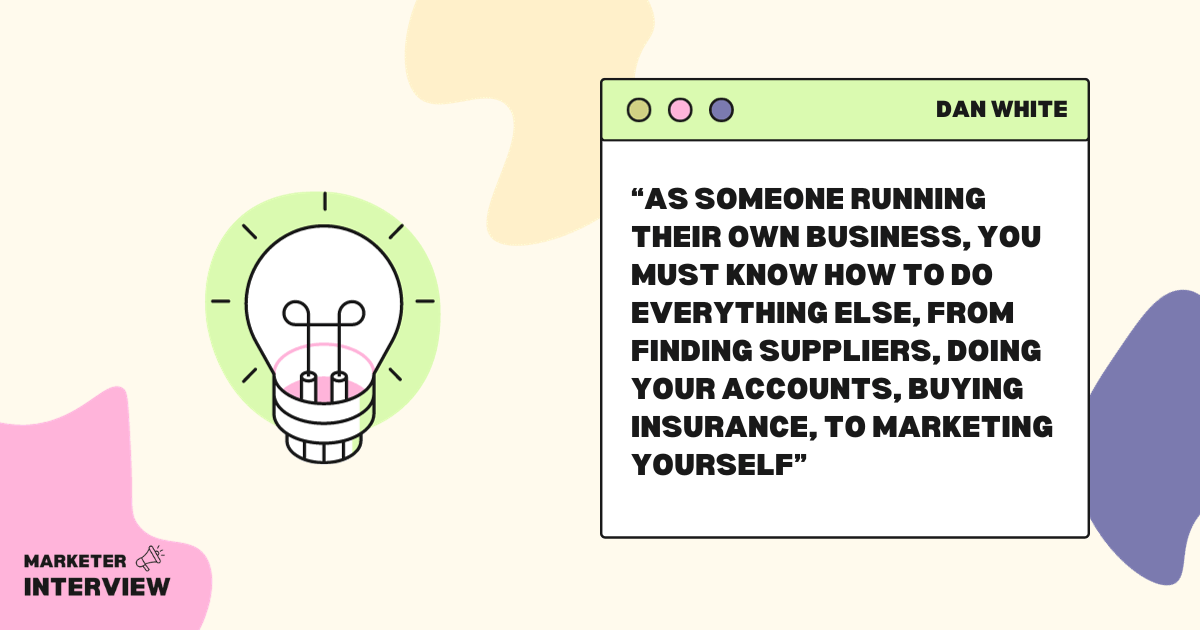
Looking ahead, what are the most significant challenges and opportunities in the SEO and content marketing landscape in the next few years?
Looking at a timescale of over a few years, it will be AI and its impact on marketing generally. As an SEO, I’m aware I should be mentioning Google’s Search Generative Experience (SGE).
However, the pace of other AI’s is moving so fast that it will be more complex and more demanding for most brands to adapt to. While a decision on a content strategy could take months before sign-off, an outlier can generate reliable copy, images, and video in a fraction of the time (and budget).
This is an excellent opportunity for some but represents a challenge for consultants like myself. Instead of tweaking existing processes, AI tools at people’s disposal mean a complete stop, a complete rethink, and a complete change in direction. These wholesale changes generally are more challenging for consultants and clients to achieve.

